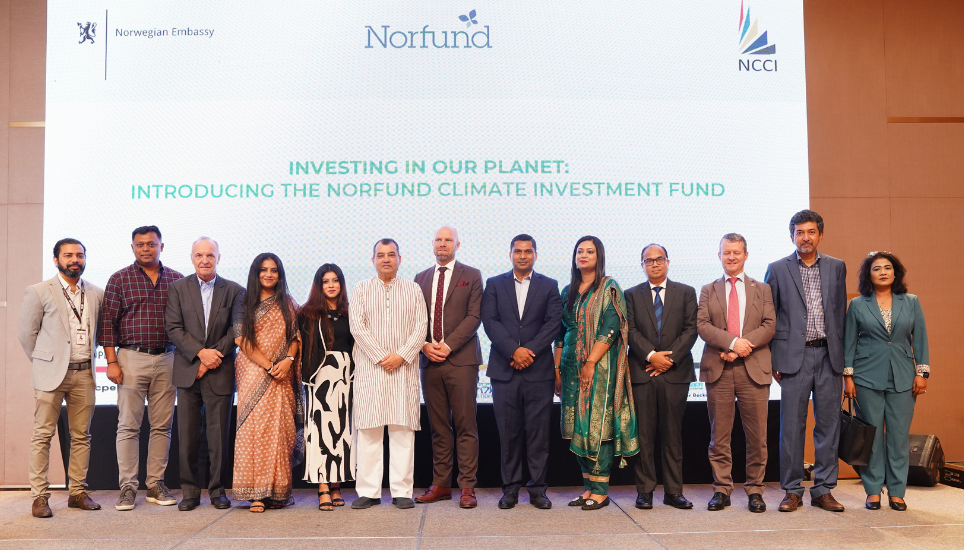
The Norwegian Investment Fund for Developing Countries (Norfund) will invest around $1 billion (NOK 10 billion) in the renewable energy sector of eight countries, including Bangladesh.
The announcement came at a seminar titled "Investing in Our Planet: Introducing the Norfund Climate Investment Fund" arranged jointly by the Royal Norwegian Embassy in Dhaka and the Nordic Chamber of Commerce and Industry (NCCI) in Bangladesh on Monday.

The Climate Investment Fund (CIF) managed by Norfund, marks a significant step in Norway's commitment to global energy transition, read a press release.
The CIF, with an allocation of 10 billion NOK (Norwegian Krone) from 2022 to 2027, is dedicated to invest in renewable energy and low-carbon technologies in developing countries with significant emissions from coal and other fossil fuel power production. Among them, Bangladesh holds a prominent position.
The fund is targeted to invest in a wide range of renewable energy projects, including large-scale endeavors like solar power plants and wind farms, as well as smaller opportunities such as rooftop solar installations.
Additionally, the CIF supports enabling technologies with substantial climate impact, such as energy storage and transmission infrastructure.
The event shed light on Bangladesh's green energy transition including increased investments in renewable energy, the development of conducive policies to facilitate green energy investments, the removal of fiscal barriers to renewable energy accessories, and collaboration with development partners for technical and financial support to accelerate the transition.
Speaking as the chief guest Saber Hossain Chowdhury, the special envoy to the Prime Minister for Climate Change and Chairperson, said Bangladesh is one of the most climate vulnerable countries in the world and climate change impact is causing the country to lose 2 per cent of its gross domestic product.
“Bangladesh is not only in need of investments in tackling climate impacts but also requires technical assistance in building knowledge and capacity and The Nofund Climate Investment Fund can be a great facilitator,” he said.
NCCI President Tahrin Aman said, “Bangladesh's energy and power sector is in the midst of a profound transition, shifting from traditional fossil fuels to renewable energy sources. This transition is not merely a change in our energy sources; it is a testament to our determination to build a sustainable and resilient future.”
“Access to capital – so important to develop the renewable energy industry. Reliable and experienced financial partners are key to facilitate for further developments in renewable power generation,” Norway Ambassador Espen Rikter-Svendsen said.
He has also stressed on removing obstacles and creating a dynamic business climate for renewable energy by improving governance and transparency, well-regulated markets and smart incentives that promote the right kind of investments.
The seminar served as a platform to introduce the Climate Investment Fund and Norfund's role in advancing renewable energy in Bangladesh. It brought together key stakeholders, including government officials, industry experts, investors, and thought leaders, to explore opportunities for collaboration and investment in the green energy transition.
Bangladesh's energy and power sector is undergoing a transformative shift from traditional fossil fuels to renewable energy sources. The adoption of the Mujib Climate Prosperity Plan (MCPP) has set ambitious renewable energy targets, underscoring the country's determination to embrace green energy.
Various stakeholders, including NGOs, think-tanks, financial institutions, the private sector, and energy experts, have worked relentlessly for years to promote a sustainable energy agenda, ensuring energy security and reducing dependence on imported primary energy sources.